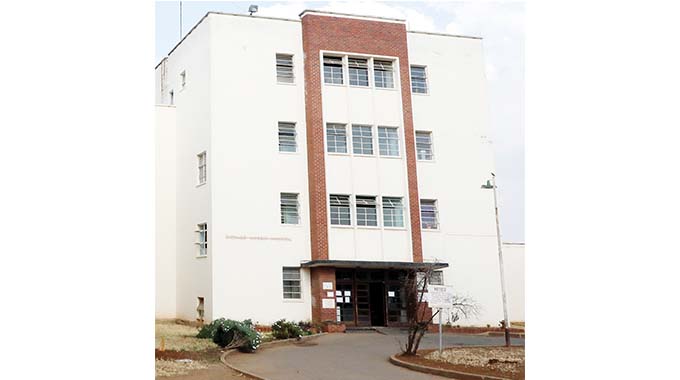COMMENT: Stigmatisation on Covid-19 basis unjust and inhumane

Yesterday we carried two front page stories that are further evidence of the long way we still have to go to eliminate Covid-19 stigma.
In one of them, the United Bulawayo Hospitals (UBH), traditionally always teeming with patients threatening to overrun the facility’s bed capacity, is now some sort of white elephant. This has been the case since the hospital was recently designated the top Covid-19 management centre in Bulawayo.
Mpilo Central Hospital, the other major public health facility in the city now attends to patients suffering from other ailments, not from Covid-19. However, patients not complaining of Covid-19 are now shunning UBH, said the facility’s acting chief executive, Dr Narcacius Dzvanga fearing that they could contract the disease. He said UBH was as a result attending to as few as 12 patients per day which was far less than what is expected.
“We would like to emphasise that UBH is now open for all health care services after Covid-19 patients were moved to Richard Morris Hospital,” he said.
“At the moment we have eight patients admitted and the rest of the hospital is open for members of the public. It’s true that UBH is going to be one of the Covid-19 isolation and treatment centres but it’s open to the public for usual services be it maternity, accidents, surgical operations and other such services.”
In the other piece, the Deputy Minister of Public Service, Labour and Social Welfare, Cde Lovemore Matuke shared how he had to fight the combined threat of Covid-19 and stigma after he recently tested coronavirus positive. Nurses in Harare did not want to treat him, he said, which forced him to leave the capital for his rural home in Gutu, Masvingo, where his wife and daughter took good care of him resulting in him recovering from the infection.
“I think we also need to reorient some nurses on stigmatisation,” he said.
“Nurses didn’t want to get close to me and that’s why I decided to leave Harare to be with my family members whom I knew would not abandon me. Of course we made sure they were protected enough before coming to see me.”
Some nurses, we have also reported on these pages over the past few weeks, have been evicted from their lodgings by landlords who take their tenants as carriers of the disease. In addition, there are many people who have suffered stigma even after they recovered from Covid-19.
We are deeply disturbed by this discrimination against people, even places, on the basis of Covid-19 infection. The point has to be made that stigmatising people on the basis of Covid-19 infection is unjust, inhumane and potentially unlawful.
Stigmatisation of people infected with Covid-19 can force some to close themselves up thus fail to seek medical treatment and other forms of support in their fight against the disease. Failure to access treatment can cause unnecessary suffering for the infected and can result in death. People who get subjected to stigma because they are Covid-19 positive or have recovered from it can be emotionally scarred for the rest of their lives. In the case of young people who suffer stigma, they may be so disturbed as to fail to attain their full long term potential academically, professionally and socially.
We have had cases of people committing suicide fearing stigma after testing positive for HIV, cancer and so on. It is possible also that some who test Covid-19 positive and fearful of the stigma that many are suffering, may be so emotionally troubled that suicide can appear the only way out for them.
“Stigma affects emotional or mental health of stigmatised persons or groups and the communities they live in,” says the World Health Organisation (WHO).
“Stopping stigma is immensely important to making communities and community members resilient. Stigma robs individuals of opportunities that define quality life ranging from satisfactory health care to affiliation with a diverse group of people. It also hurts those who are trying to battle their challenge, it hurts those who lost loved ones due to the condition or are trying to support their loved ones as they cope with the condition.”
Indeed, we must not stigmatise anyone because they are Covid-19 positive or because the persons involved are frontliners for whom the risk of contracting the coronavirus is comparatively higher than ordinary people. The precautionary measures developed by WHO – wearing of face masks appropriately, frequent hand-washing with soap or appropriate sanitiser, upholding respiratory hygiene, social distancing, testing and prompt seeking of treatment are the weapons to help us collectively defeat Covid-19. Stigma does not help. In fact, it can undo the modest successes that have been scored against the disease, all to our collective detriment.









Comments